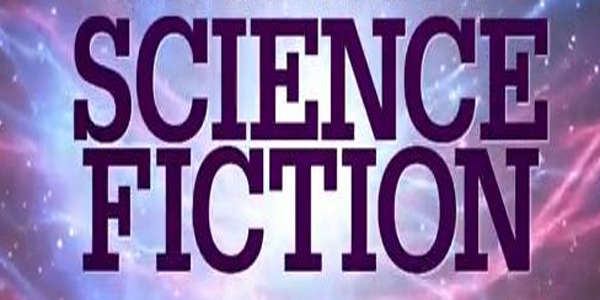I have spent my entire life living in the world of science fiction on various levels. In childhood it was being mesmerized by the literary works of writers like Jules Verne and H.G. Wells and watching those works get translated into scratchy old black and white films from the 1930’s and 1940’s. Then it was onto that small ten-inch screen housed in a gigantic wooden box that brought the visual stories of Rod Serling, Arthur C. Clarke, Alfred Hitchcock, Philip K. Dick and Gene Roddenberry into my living room. As a journalist I have spent my adult life writing about it. And, in the beginnings of this 21st Century it is seeing great works of sci-fi on massive high definition screens that are stories tall while being engulfed in three dimensions and Dolby high-res digitized surround sound. However, regardless of how it is presented — oral storytelling around a campfire, in books, e-readers or small and big screens there is something about science fiction that finds a level of appeal to human beings on this planet. Just what could that appeal be?
While science fiction as we know it has been around for at least two hundred years the founder of science fiction fandom, Forrest J. Ackerman is credited with coining the phrase “sci-fi” and made it part of the vernacular in the early 1950’s. Even though he is considered to be the Moses of sci-fi he really never made a serious attempt at trying to define what the genre was, mainly because he felt it to be too many things to too many people for a one liner hook. However, other greats from science fiction have tried. A study of the genre by Princeton University cited several science fiction authors in their look into the subject. Their study revealed that probably the most prolific writer of the 20th Century, Robert A. Heinlein defined the genre as a “Realistic speculation about possible future events, based solidly on adequate knowledge of the real world, past and present, and a thorough understanding of the nature and significance of the scientific method.” While being a bit long-winded, as Heinlein often became in his tomes, his definition is probably the best all around and gives us a clue as to the world-wide appeal of the genre. Rod Serling gave the shortest and most concise determination when he stated that “Science fiction is the improbable made possible.”
When these two interpretations are looked at closely we can begin to understand what it is about science fiction that tends to draw many of us in.
If sci-fi is based on both speculation and realism as Heinlein suggests and allows for equal parts imagination and astute discourse by the above average intellect then the appeal would be near impossible to ignore by those with a creative and perceptive mind. That kind of discerning mental palette simply cannot ignore it and will be drawn in, but only if what is being read or viewed is both intellectually stimulating and emotionally profound, allowing for both lively discourse and experimentation.
Those drawn to science fiction that comes on the inventive level of an Asimov, Herbert, Clarke, Bradbury or Robinson will also be sufficiently peaked as well due to its Serling nature. It will be seen as a challenge to the psyche, particularly if what is being presented in the work; be it a novel, short story, television spot or film, is by all appearances “improbable.” The brilliant among us love nothing more than making what the average citizen of the world considers impossible, probable and beyond that — doable!
Without science fiction and those minds pulled into its web of genius nearly all of those modern day inventions we now take for granted would have never come into reality but would have remained locked on the pages of books or in the dialogue of characters on film. Diseases, now considered obsolete would still be running rampant, communications, distribution of power to individual homes and places of business, travel by land, air and sea would likely have remained a dream in the minds of great writers of the past and space would continue to be something humans could only speculate about.
Science fiction made all these things possible because someone read or saw the works of these great men and women in their books and films and decided the improbable could be made possible. That, above all else, is the appeal of this genre we call science fiction.


4E (Ackerman) was not “the founder of sf fandom”…other early fans like Wollheim, Moskowitz, Asimov, Bradbury, Pohl would probably take issue with that statement. He did win a #1 fan award in ’53, but fandom had been ongoing since the late 20s. He can lay claim to coining ‘sci-fi’ – which fandom almost universally rejected; Ellison referred to it as ‘the sound of crickets f***ing’ and most everyone else started pronouncing it ‘skiffy’.
Heinlein was not the most prolific sf author with a definition. Remember Asimov? far mire books, and several definitions.